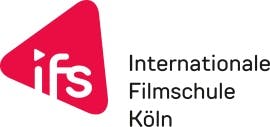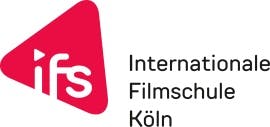Das Master-Studium
Shaping Stories for the Digital Society
Stories shape how we understand our world. Today, those stories are increasingly shaped by digital technologies. From immersive experiences to AI-driven narratives, the ways we tell stories are evolving rapidly.
In the Master’s Programme Digital Narratives, media and creative professionals gain the necessary theoretical and practical skills to critically engage with digital media, experiment with different formats, and create and produce their own digital narrative projects. Throughout 4 semesters, they are supported by expert faculty, production resources, and technical equipment in the development of their own artistic and academic practice.

With a special focus on immersive technologies, interactive storytelling, and the impact of AI in media production, the programme trains creative storytellers to master the narrative formats and production techniques of emerging digital media to successfully develop innovative media formats.
Working with a research-creation approach, the programme encourages students to engage critically with new technologies by questioning the tools they use, challenging dominant narratives, and inquiring the social, ethical, and cultural implications of their own work.
In a field characterised by ongoing transformations, we aim at supporting students in their professional development, while shaping the narratives behind digital technologies.
Key areas:
- Conceptualisation, dramaturgy, design, and production of digital narrative projects, such as:
- Web series
- XR, VR and AR projects
- Interactive documentaries
- Immersive installations - Work with emerging technologies:
- Extented Reality (XR)
- Artificial Intelligence (AI)
- Interactive media - Immersive narratives
- Creative development and agile production structures and methods
- Experimenting and iterating as a way of learning
- Research-creation
- Theoretical debates and critical discourses in media studies and cultural studies
- Critical analysis around the ethical, economic, social equity, gender and diversity, and ecological ramifications of digitisation
- Social debates and responsibilities of creators
During the programme and as part of their MA thesis, students develop a master’s project with an allocated budget.
The Master’s Programme also prepares students for a practice- or art-oriented doctoral studies programme.
Berufsbild und Karrierechancen
Graduates expand their careers across the creative industry, academia, or a combination of both. They are equipped to work at the forefront of digital storytelling.
Those who choose to pursue a doctoral degree after the programme, are well suited to do so in areas such as media and art studies, cultural studies, game studies, narratology, and digital culture, and are qualified to do so from a research-creation or artistic research approach.
Additionally, graduates pursue the development of their own digital narrative projects in a variety of narrative formats and platforms, including XR, VR, AR, interactive web series, AI-driven projects, games, innovative journalism, interactive and digital documentaries, immersive and non-linear narrative formats, and story worlds.
Our graduates are media creators and researchers who understand the evolving language of digital media, actively shape the industry and participate in discussions around digitality. They are often involved in projects with strong social and ethical ethos behind them. They may hold leading creative or artistic roles.
Possible professional fields for graduates of the MA Digital Narratives programme are:
- Creative director, creative producer
- Storyworld designer, narrative/content designer, story editor
- UX designer
- Media artist
- Media researcher, doctoral student
- Curator, media critic
- Documentary-maker and/or journalist specialising in digital narrative formats
Studienplan und Studienschwerpunkte
The 4-semester full-time Master's Programme is modularised and is composed of:
PROJECT MODULES
Students go through four project phases, each with a different focus in terms of content and methodologies, to produce a Core Experience Prototype for their Master's project.
DIGITALITY AND CHANGE MODULES
These modules engage students with the (media) theoretical and aesthetic foundations of digital narratives and critically engage with the digital society.
NARRATIVES MODULES
The modules "Narratives" deal with dramaturgy, storytelling, and worldbuilding as the narrative foundations of immersive and interactive digital narratives.
METHODS MODULES
In these modules, students gain know-how on creative and technological skills and tools to experiment and practice with different mediums, particularly XR technologies. They will be able to communicate and/or lead teams in the production and placement of projects in the marketplace.
Aufnahme und Zugangsvoraussetzungen
The Master's Programme MA Digital Narratives admits new students every two years in the winter semester. Admission follows a two-stage process.
The two-stage application process consists of:
- Submission of application documents
- A selection interview
Applicants must submit past work samples, a CV, and assignments to demonstrate their eligibility to participate in the MA Digital Narratives programme. Applications will be reviewed by a committee, and shortlisted applicants will be invited for an online interview. The selection committee will then invite the selected applicants to participate in the programme.
General Requirements
A Bachelor’s degree with proof of at least 180 ECTS (or a similar academic or higher degree). To ensure that the education certificates and diplomas acquired abroad comply with the admission requirements of the ifs (higher education qualifications), applicants can consult the following database: https://anabin.kmk.org.
At least one year of specialised professional practice or similar professional project experience after the Bachelor’s degree.
Proof of programme related aptitude for the MA Digital Narratives.
Language Skills
Very good knowledge of English
B2 level of the Common European Framework of Reference for Languages, e.g. by a TOEFL score of a minimum of 72 points (internet-based) or equivalent test results. Native English speakers are exempted from this.
Information for international applicants
To ensure that the education certificates and diplomas acquired abroad comply with the admission requirements of the ifs (higher education qualifications), applicants can consult the following database: https://anabin.kmk.org. If your degree does not fulfil the ifs's admission requirements, but you have a recognisable talent and previous adequate experience, you may be invited to participate in a separate admission’s procedure to demonstrate your individual artistic aptitude.
Please also check at the German embassy of your home country whether you need to provide an APS certificate by the Academic Evaluation Center for your visa application.
To obtain a residence permit, international students have to demonstrate sufficient funds to secure their livelihood. The required blocked amount for a student visa application is based on the current BAföG rate - the national standard that defines the absolute minimum of a student’s necessary expenses for an adequate standard of living. As of the winter semester 2022, international students must prove that they have sufficient funds to cover an amount of €934 per month or €11,208.00 per year. Note that this amount may change from year to year due to the ongoing increase in costs for housing, electricity, food, etc.
Gebühren
One time registration fee: 400 Euro
International students: 3.750 Euro per semester
EU students: 2.750 Euro per semester
Semester fee TH Köln: approx.. 340 Euro
Blended-Learning Studiengang
The Master's Programme Digital Narratives is a four-semester full-time Master's Programme with 120 ECTS.
LECTURE TIMES PER SEMESTER:
1st semester: 12 weeks
2nd semester: 12 weeks
3rd semester: 12 weeks
4th semester: 4 weeks
Lecture periods are divided into attendance time and self-study time.

